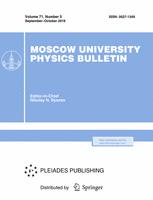The modern development of renewable energy has led to the widespread adoption of photovoltaic (PV) systems. Despite traditional views, PV technologies show significant potential in cold climate regions, including vast areas of Russia, where the annual energy yield can be economically viable. However, the operation of PV modules in such harsh conditions faces a complex set of specific impacts, the most critical of which are the repeatedly occurring freeze-thaw cycles of moisture. These cyclic thermal and mechanical stresses accelerate the degradation of materials and components, causing delamination, corrosion, and microcracks, which critically affect the performance and longevity of the systems. This article is dedicated to a detailed study of the degradation mechanisms of PV modules caused by freeze-thaw cycles, using the climate of St. Petersburg as an example. Based on field observations and literature analysis, the key degradation processes affecting the reliability of PV systems in this climate zone have been identified and analyzed. The goal of the work is to deepen the understanding of degradation specifics in cold climates to develop methods for enhancing the reliability of PV modules.
$^1$Peter the Great St. Petersburg Polytechnic University, Institute of Machine Building, Materials and Transport, Russia



